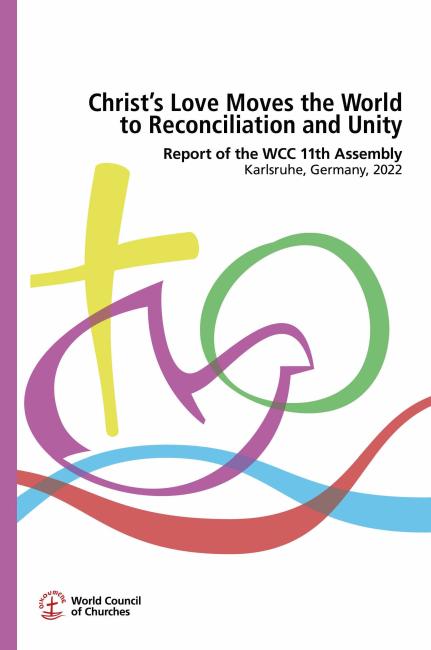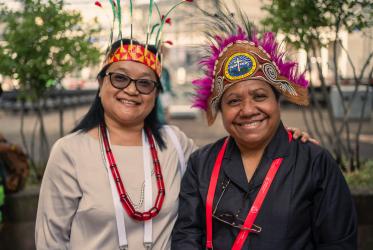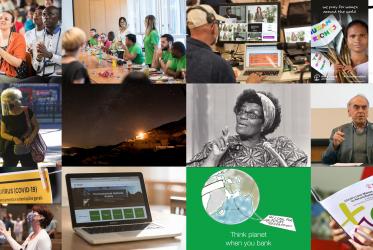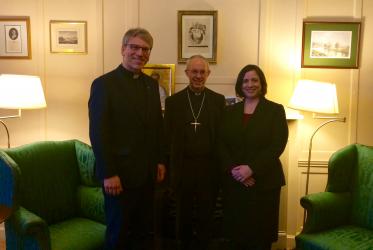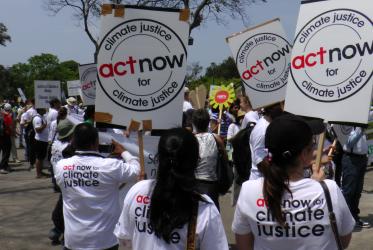Displaying 1 - 20 of 25
23 October 2023
WCC Executive Committee envisions future for one ecumenical movement
08 November 2018
“When everybody is building walls, the church can build bridges”
30 January 2017
Church in German state is a partner for refugees and society
20 December 2016
London meetings build on ecumenical momentum from Paris
18 December 2015
Consultation considers right to food in context of climate change
15 December 2015
2018 Ecumenical School on Governance, Economics and Management (GEM) for an Economy of Life
19 - 31 August 2018
Mexico City, Mexico
Churches' “prophetic voice” will be busy in 2015
18 June 2015

